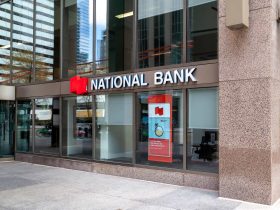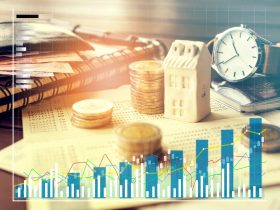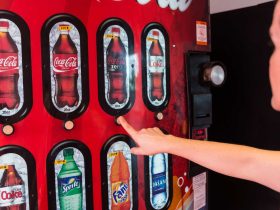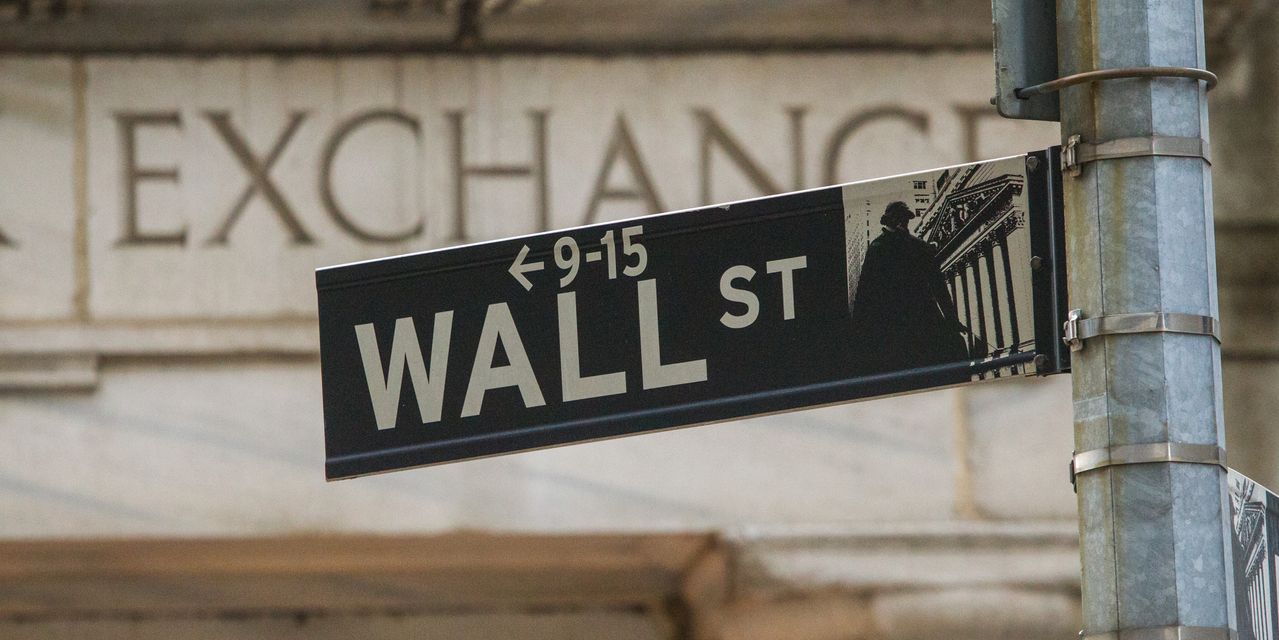U.S. stocks closed sharply lower Tuesday, led by technology stocks, as long-term Treasury yields rose to their highest levels in a dozen years or more, the dollar climbed for a 5th day to a ten month high, and consumer confidence slumped.
How stocks traded
-
The Dow Jones Industrial Average
DJIA
closed down 388.00 points or 1.1% at 33,618.88. It recorded the largest one day point and percentage decline since March 22. It also fell below its 200-day moving average, while the index last broke below the same support level on May 25. -
The S&P 500
SPX
ended down 63.91 points or 1.5% to 4,273.53 -
The Nasdaq Composite
COMP
declined 207.71 points, or 1.6% to 13,063.61
Stocks on Monday snapped a four-day losing streak, with the Dow gaining around 43 points, or 0.1%, while the S&P 500 increased 0.4%, and the Nasdaq Composite rose 0.5%. Major benchmarks remain on track for September losses, with the S&P 500 extending a pullback from its 2023 high set at the end of July.
What drove markets
The prospect of interest rates staying higher well into next year again pressured equity valuations, especially in the technology sector.
The yield on the benchmark 10-year Treasury
BX:TMUBMUSD10Y
rose 1.7 basis points to 4.558% Tuesday, the highest level since 2007, as the market continued to price in hawkish interest rate projections from the Federal Reserve.
“Elevated yields will serve as a headwind to equities through the end of the month and perhaps the end of the year,” according to Alex McGrath, chief investment officer for NorthEnd Private Wealth.
Climbing Treasury yields could weigh on multiples on the “magnificent seven” stocks, including Apple
AAPL,
Microsoft
MSFT,
Nvidia
NVDA,
Amazon
AMZN,
Meta
META,
Tesla and Alphabet
GOOGL,
which contributed to most of the stock market’s rally this year, McGrath wrote in emailed comments.
See: ‘It’s pretty dire,’ John Hancock strategist says of sentiment on Wall Street as bond yields march higher
Many Fed officials in recent days have reiterated they believe the central bank will need to increase rates again and keep them at elevated levels for some time to quell inflation.
Jamie Dimon, CEO of JPMorgan Chase warned the market is not ready for interest rates that could go to 7% if inflationary pressures are not sufficiently contained.
Worries that higher interest rates are beginning to affect the U.S. consumer are also contributing to market weakness, said David Rosenberg, president of Toronto-based Rosenberg Research, in a Tuesday note.
And the stock market faces other “more durable shocks coming from the breakout in the U.S. dollar, a margin-squeeze from the latest spike in oil prices, and the relentless run-up in market interest rates,” he wrote. “Plus, we are in a shift from fiscal stimulus towards restraint, especially when it comes to how this affects the consumer sector.”
Higher Treasury yields relative to their international peers have lifted the U.S. dollar, with the dollar index
DXY
moving above 106, to its highest in about 10 months. A surging dollar can also act as a headwind for U.S. equities, partly by making multinationals less competitive.
In U.S. economic news, the Conference Board’s closely followed consumer-confidence index fell to a four-month low of 103.0 in September, reflecting angst about rising interest rates, still-high inflation and a budget stalemate in Washington, as well as consternation about high gasoline prices.
The S&P CoreLogic Case-Shiller 20-city house price index rose 0.9% in July, as compared with the previous month. Prices were up for the sixth month in a row. On a year-over-year basis, home prices in the 20 major metro markets in the U.S. were up 0.1%. A broader measure of home prices, the national index, rose on a month-over-month basis in July by 0.6%, but rose 1% over the past year. All numbers are seasonally adjusted.
Separately, the Commerce Department said U.S. new-home sales fell 8.7% to an annual rate of 675,000 in August, from a revised 739,000 in the prior month.
Also, not helping the mood was nervousness across Asian bourses amid increased worries about China’s property sector. Shares in China Evergrande HK:3333 plunged afresh after the heavily indebted developer missed a debt payment and former executives were detained by the authorities. Hong Kong’s Hang Seng Index fell 1.4% to its lowest since November.
Companies in focus
-
Amazon
AMZN,
-4.03%
closed down 4% after the U.S. Federal Trade Commission and 17 state attorneys general sued the e-commerce giant on Tuesday, on anti-trust grounds. -
Tesla Inc.
TSLA,
-1.16%
has likely benefited from China subsidies, a European Union investigation reportedly found, which could lead to fines for the electric-vehicle maker or other measures to level the playing field. Shares fell 1.2%. -
Rivian Automotive Inc.
RIVN,
+5.35%
finished up 5.4% after being designated Tuesday as a bullish “fresh pick” by Baird analyst Ben Kallo ahead of the electric-vehicle maker’s deliveries report due out next week. -
Fisker Inc.’s stock
FSR,
+9.60%
jumped 9.6%, after the EV maker said it expects to reach its target of deliveries of 300 vehicles a day later this year. -
Thor Industries Inc.‘s
THO,
-2.07%
shares fell 2.1% after the RV maker forecasted full-year profit and sales that missed expectations, and said it expected subdued consumer demand to continue in the months ahead. -
United Natural Foods Inc.’s stock
UNFI,
-27.43%
tumbled 27.4%, after the grocery wholesaler swung to a fiscal fourth-quarter loss and posted sales that lagged estimates.
— Jamie Chisholm contributed.
Read the full article here













Leave a Reply